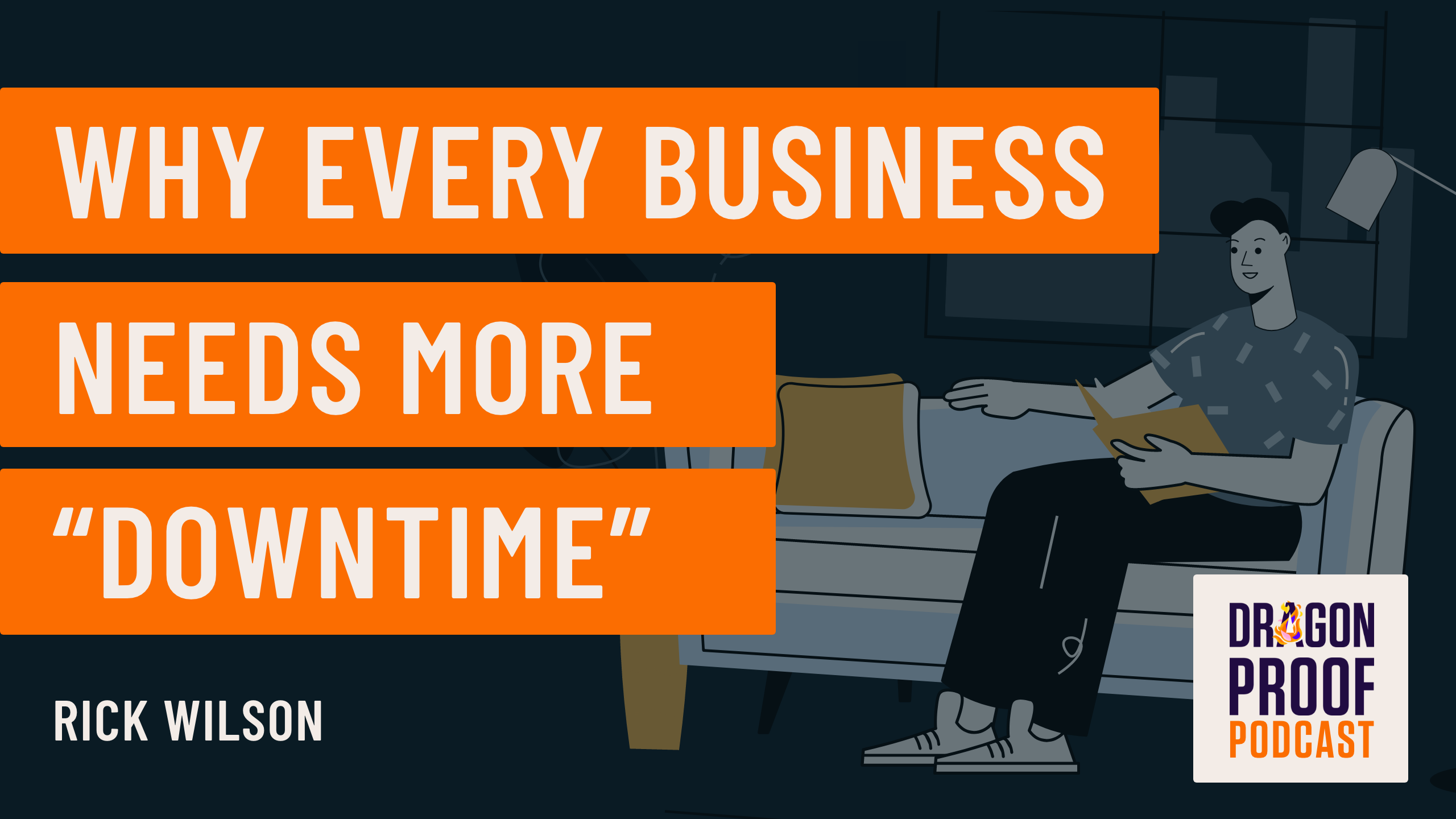
See why top ecommerce brands use Miva’s no-code platform to run
multiple stores, manage massive catalogs, and grow their revenue.
New podcast: Why Every Business Needs More “Downtime”
For many entrepreneurs, slowing down feels like failure. However, many iconic businesses not only allow for downtime, they count on it. Google’s "20% time" program encourages workers to spend one day per week taking a break from normal tasks to brainstorm new ideas—a program which generated huge innovations for the company, such as Gmail. On the new episode of the Dragonproof Podcast, Rick Wilson explores the concept of downtime as a key strategic advantage for business leaders. Read on for an overview of the benefits of taking downtime, and how to approach time away from the office with intentions that will enhance the longevity of any business.
In conventional business terms, “downtime” is frequently used to describe systemic failures which crash a site, cost labor productivity, or inhibit revenue. Given the reputational hit that a broken store can cause, the technology which powers a business must perform around the clock. But for human workers, time away from daily tasks can be valuable. Remote-first work has blurred the lines between personal and professional time. When paired with our omnipresent devices and a culture that’s addicted to the internet, this trend will surely lead to burnout for any work culture which fails to address it.
“We need computer systems to essentially perform at 100% up-time, but human systems are different,” Rick says. “If you require your employees to perform at the same level as a machine, you will eventually burn them out.”
Downtime might also indicate a period of naturally slower business, such as for seasonal products or audiences. In this case, organizations are well-served by offering flexible schedules which allow employees to use this “off” time to enrich all aspects of life, including work.
With a 5-day work week, the average year has 250 potential work days. But according to Rick, maxing out is not sustainable for most businesses and workers.
“A great question to ask is, can you sustain your life and business with just 225 work days per year? The point is getting out of your own way to let the seeds you’ve planted grow,” Rick says.
Here are some simple guidelines for how to approach the slow days or seasons that are a part of every business calendar:
Time off from devices, email, and meetings opens up mental space and sets the stage for creativity and fresh insight.
Don’t try to fill every second with tasks and to-do lists.
If you have a specific or pronounced need for personal time without distraction, it’s important to let your co-workers know. Simply setting “office hours” for work duties and sticking to them is a great first boundary.
Personal hobbies and passions are an essential counterbalance to work life...just don’t replace over-thinking at work with over-thinking about projects you do for fun.
The benefits of daily physical movement can be profound for emotional health. Simple walks and soothing physical activities are also wellsprings for new ideas...that’s why they call them “shower thoughts.”
Downtime shouldn’t just happen by chance. Companies which structure “imagination time” into a work week always see dividends (that’s how 3M invented Post-Its!).
The key benefit of automation technologies is that they allow people to accomplish more with less...less time, less stress, less burnout. The digitalization of the world’s businesses has positioned independent sellers for extraordinary efficiency and profitability. Leaders should remember that the increased “downtime” which comes as a result is the time for reflection, inspiration, and a healthy mindset which leads to great work.
Listen in to the full talk in Dragonproof Podcast episode 65, “Why Every Business Needs More Downtime” - here.
Share this article:
No worries, download the PDF version now and enjoy your reading later...
Download PDF Miva
Miva
Miva offers a flexible and adaptable ecommerce platform that evolves with businesses and allows them to drive sales, maximize average order value, cut overhead costs, and increase revenue. Miva has been helping businesses realize their ecommerce potential for over 20 years and empowering retail, wholesale, and direct-to-consumer sellers across all industries to transform their business through ecommerce.
Visit Website